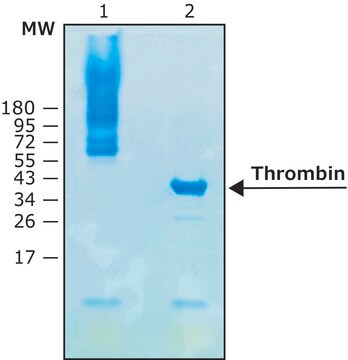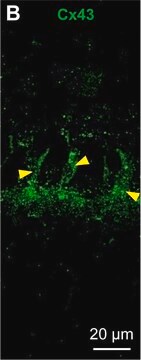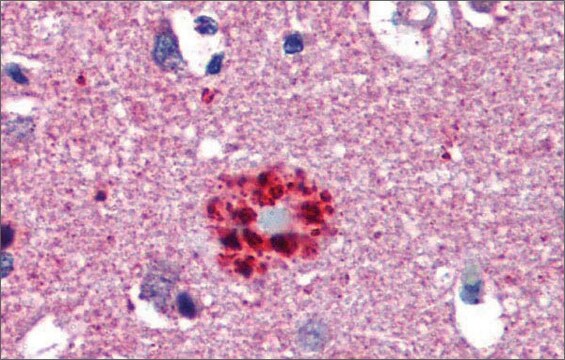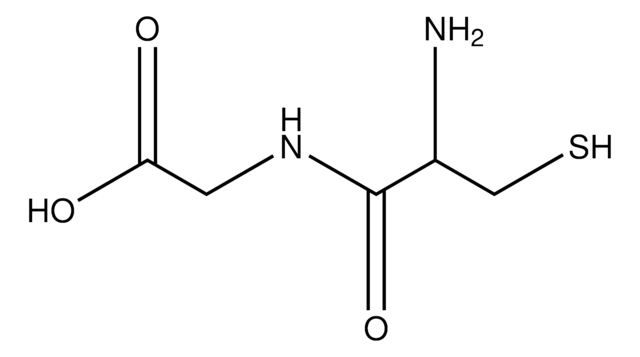SML2627
Connexin43 mimetic peptide 5 trifluoroacetate salt
≥95% (HPLC)
Synonym(s):
Peptide 5 trifluoroacetate salt, VDCFLSRPTEKT trifluoroacetate salt, Val-Asp-Cys-Phe-Leu-Ser-Arg-Pro-Thr-Glu-Lys-Thr trifluoroacetate salt
Sign Into View Organizational & Contract Pricing
All Photos(1)
About This Item
Empirical Formula (Hill Notation):
C60H98N16O20S · xC2HF3O2
CAS Number:
Molecular Weight:
1395.58 (free base basis)
UNSPSC Code:
12352200
Recommended Products
Assay
≥95% (HPLC)
form
lyophilized powder
color
white to beige
storage temp.
−20°C
Biochem/physiol Actions
Connexin43 mimetic peptide 5 is a blocker of connexin43 hemichannels that inhibits gap junction channels following CNS injury. Peptide 5 was designed to bind to extracellular regions of the connexin43 protein.
Storage Class Code
13 - Non Combustible Solids
WGK
WGK 3
Flash Point(F)
Not applicable
Flash Point(C)
Not applicable
Certificates of Analysis (COA)
Search for Certificates of Analysis (COA) by entering the products Lot/Batch Number. Lot and Batch Numbers can be found on a product’s label following the words ‘Lot’ or ‘Batch’.
Already Own This Product?
Find documentation for the products that you have recently purchased in the Document Library.
Yeri Kim et al.
Biochimica et biophysica acta. General subjects, 1861(2), 68-78 (2016-11-07)
Non-selective Connexin43 hemichannels contribute to secondary lesion spread. The hemichannel blocking peptidomimetic Peptide5, derived from the second extracellular loop of the human Connexin43 protein, prevents lesion spread and reduces vascular permeability in preclinical models of central nervous system injury. The
Yilin Mao et al.
Experimental brain research, 235(10), 3033-3048 (2017-07-21)
Systemic administration of a Connexin43 mimetic peptide, Peptide5, has been shown to reduce secondary tissue damage and improve functional recovery after spinal cord injury (SCI). This study investigated safety measures and potential off-target effects of Peptide5 systemic administration. Rats were
Helen V Danesh-Meyer et al.
Brain : a journal of neurology, 135(Pt 2), 506-520 (2012-02-22)
Connexin43 gap junction protein is expressed in astrocytes and the vascular endothelium in the central nervous system. It is upregulated following central nervous system injury and is recognized as playing an important role in modulating the extent of damage. Studies
Our team of scientists has experience in all areas of research including Life Science, Material Science, Chemical Synthesis, Chromatography, Analytical and many others.
Contact Technical Service







